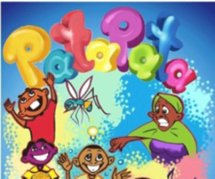Communication and Malaria Initiative in Tanzania (COMMIT)
Launched in 2008, the Communication and Malaria Initiative in Tanzania (COMMIT) wa a five-year project funded by the United States Agency for International Development (USAID) and the President’s Malaria Initiative (PMI). The Johns Hopkins Bloomberg School of Public Health Center for Communication Programs (CCP) led COMMIT in partnership with Jhpiego, Population Services International (PSI), the Research Triangle Institute (RTI), PMI, and the Tanzania Ministry of Health and National Malaria Control Programme (NMCP).
The program implemented a comprehensive strategy for behavior change and communication to support the prevention and case management of malaria in mainland Tanzania. Specifically, COMMIT supported the NMCP’s communication strategy objectives of influencing positive behavior change among audiences through a comprehensive approach, improving the flow of information to key audiences, and through advocacy to raise the profile of malaria.
The program conducted activities throughout the country with intensive community-based interpersonal communication activities in 11 of the most endemic regions in Tanzania. COMMIT integrated mass media and community-based activities designed to increase individuals’ perceptions of the threat posed by malaria as well as their confidence in their ability to take actions that effectively counter this threat. The project worked to persuade households to obtain and use insecticide treated nets (ITNs), to promptly seek treatment for fever, and to encourage pregnant women to attend antenatal clinics to obtain sulfacoxine-pyrimethamine (SP).
The first activities to be rolled out under COMMIT included roadshows and mobile video unit shows, which were implemented by PSI. This was followed by a community mobilization component with community change agents (CCAs). The CCAs worked to engage their communities in group discussions, one-on-one house visits, cultural shows, and school activities. All activities focused on the main malaria messages related to sleeping under ITNs, malaria in pregnancy, and under-five case management.
Source: USAID
Date of Publication: May 11, 2020
SIMILIAR RESOURCES
Tools
Examples
- Community Communication MNCH e-Manual: Participatory Health Promotion Sessions
- Transforming the Private Sector to Support Universal Malaria Diagnostic Coverage
- Plan Stratégique National de Plaidoyer en matière de lutte contre le Paludisme (PSNPP) en Côte d'Ivoire 2018-2023
- Creating Mobile Health Solutions for Behaviour Change: A Study of Eight Services in the mNutrition Initiative Portfolio
- Guide de Formation Conseil Dépistage du VIH au niveau Communautaire: manuel à l'intention du personnel non médical
- The ECHO Study Report
- Creative Concept Mockup Example
- Reaching First-Time Parents and Young Married Women for Healthy Timing and Spacing of Pregnancies in Burkina Faso
- Lever les Tabous: La sexualité et les approches promouvant l’égalité des genres pour mettre fin aux unions et aux mariages d’enfants, précoces et forcés
- HTSP Project Briefs: Niger, Togo

